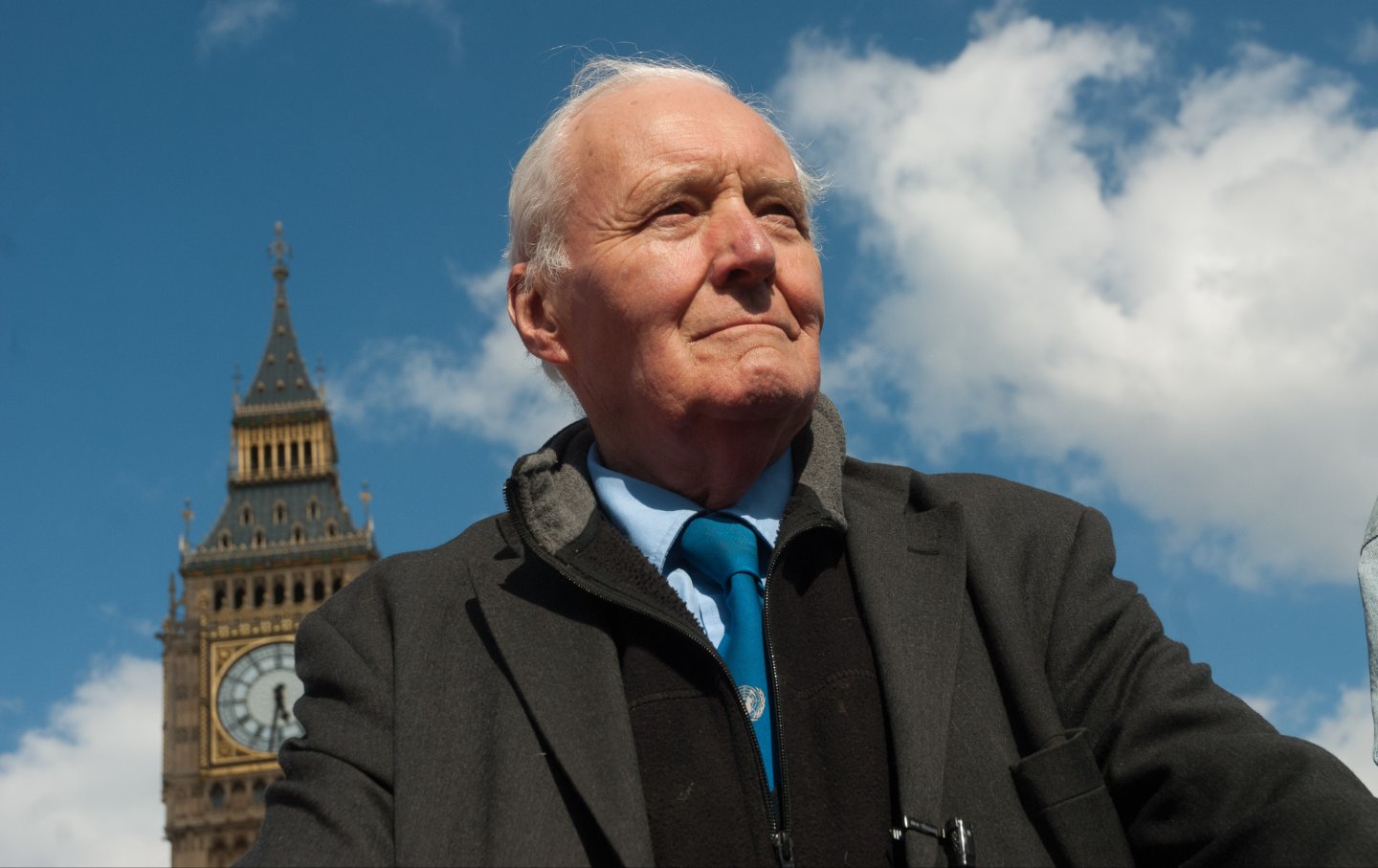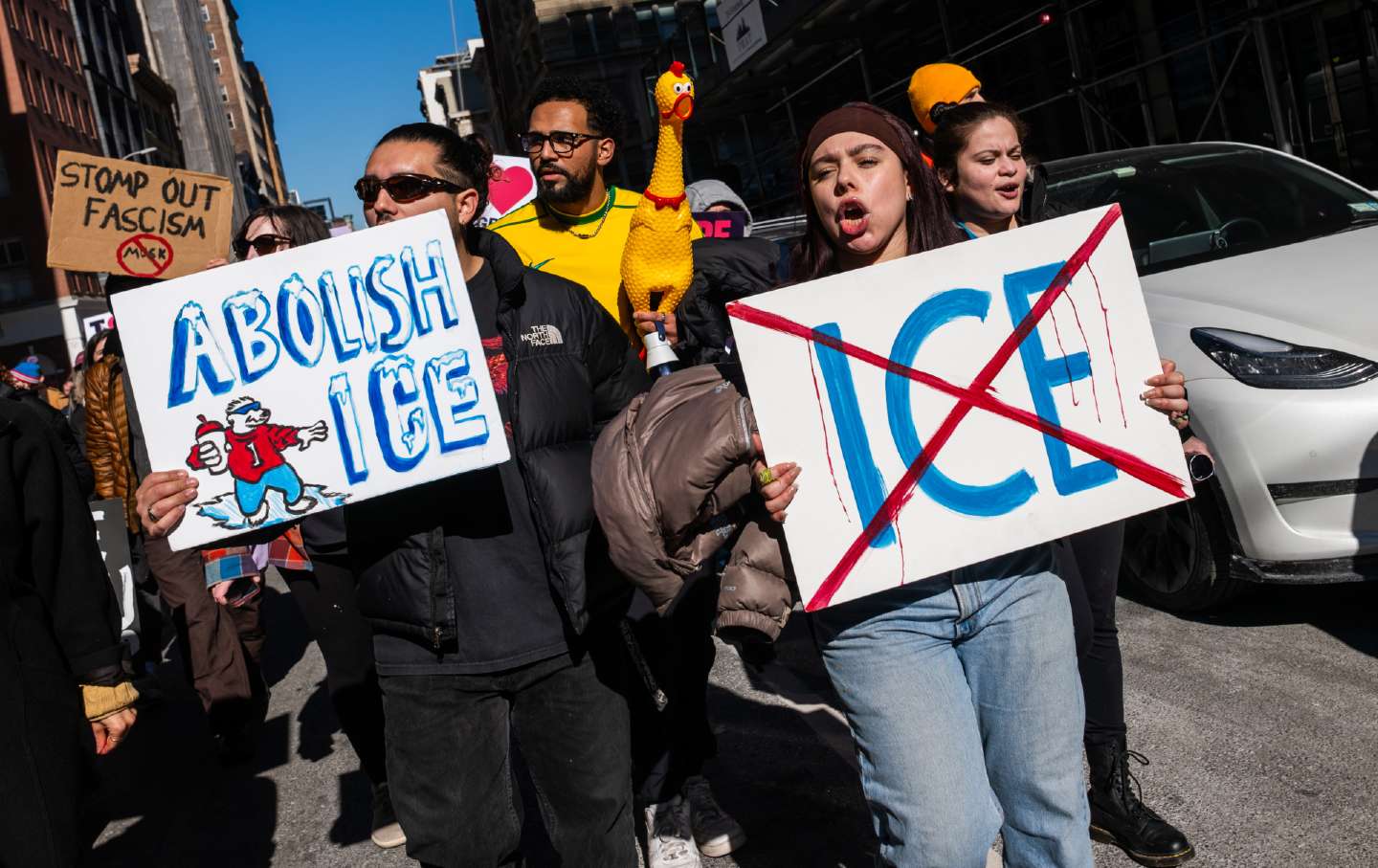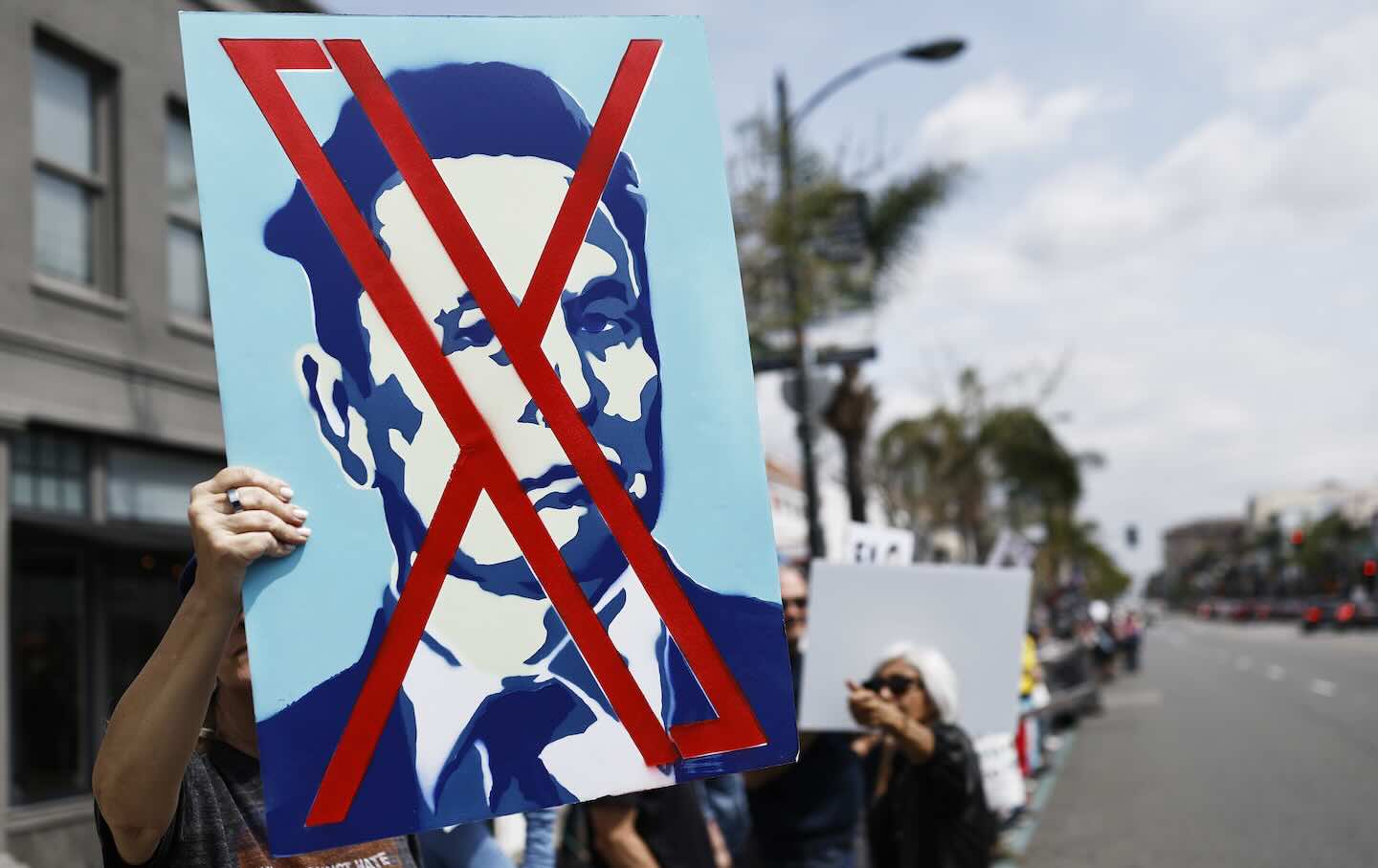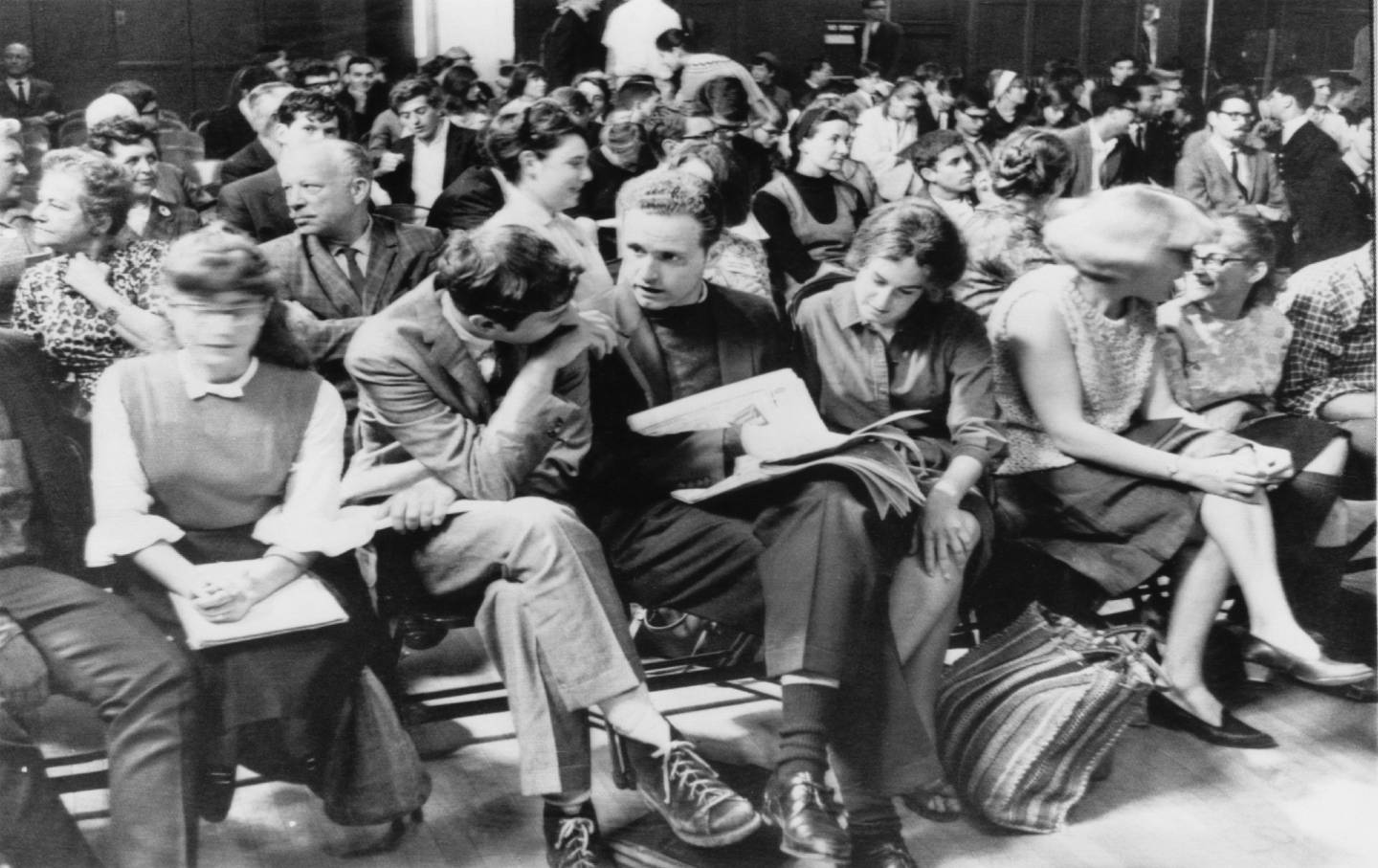The CIA Illegally Spied on Puerto Rican and Mexican American Activists for Decades
And is probably still at it. As newly released classified documents confirm activists’ long-held suspicions, the disclosures should also alert us to current dangers.
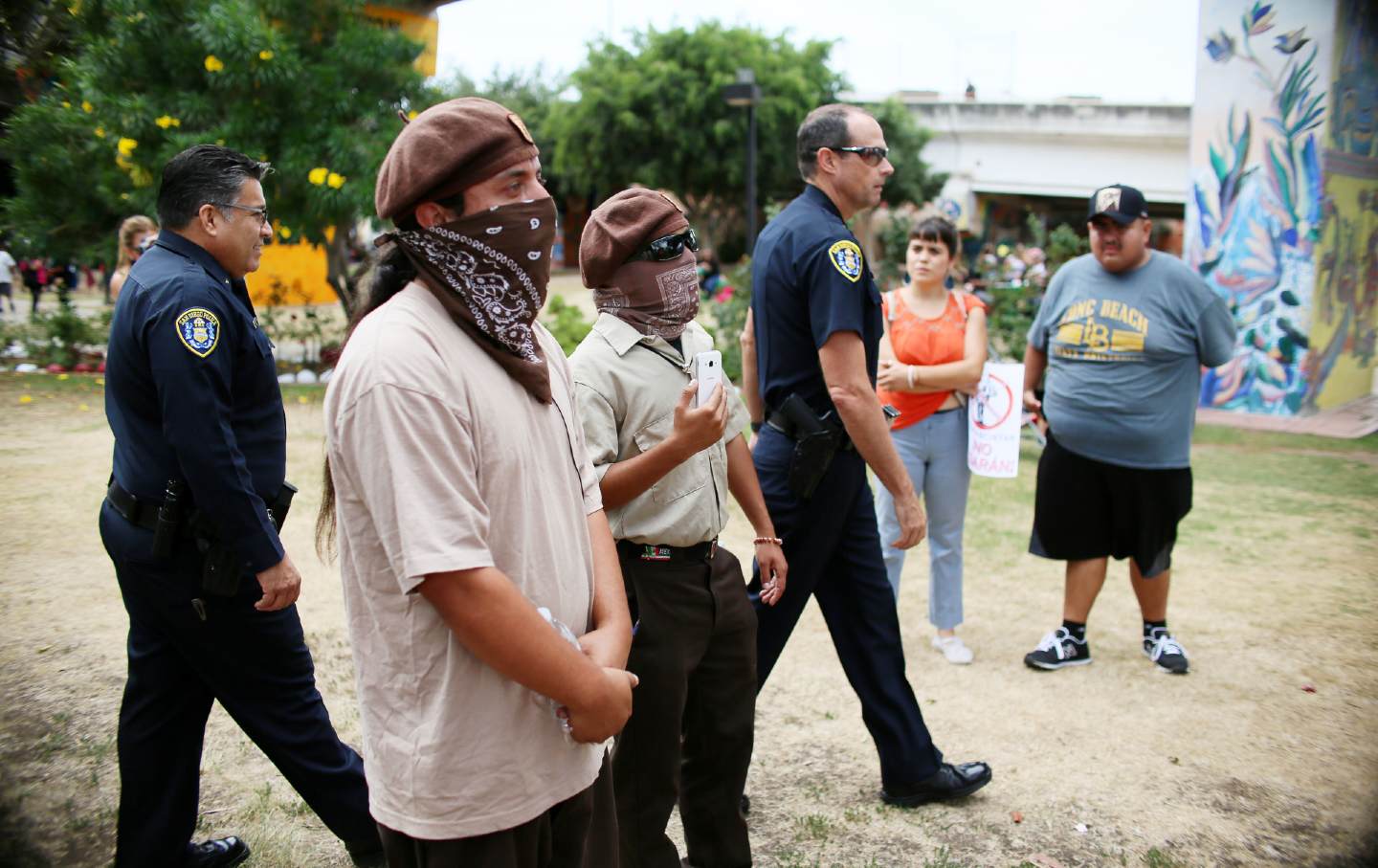
Recently released CIA documents revealing that the Agency surveilled Puerto Rican and Mexican American activists confirm what many of us have known for decades: that US government agencies have spied on Latinos—and probably still do.
The cache of 55 civil rights era documents declassified by CIA Director William J. Burns in response to requests from Representatives Joaquin Castro (D-TX) and Jimmy Gomez (D-CA) raise questions about how and why the foreign intelligence–focused CIA spied on over 7,000 US citizens and over 100 domestic organizations—and did so in direct violation of its 1947 charter.
The illegal program, baptized with the James Bond movie–sounding (or Bond spoof–sounding) name “Operation Chaos,” directed CIA assets to infiltrate and surveil Chicano, Puerto Rican, and other Latino community organizations and activists. The purpose of the operation was to “record the organizing, groups, and individuals with whom they came into contact,” according to a declassified memo titled “CIA Contact with Dissident, Radical and/or Leftist Elements in the United States.”
Following the riots and racial unrest that shook the country in 1967, President Lyndon Johnson directed federal agencies to investigate the causes of the social explosion. His directive led to the analysis and recommendations of the National Advisory Commission on Civil Disorders (known as the Kerner Commission after its chair, Illinois Governor Otto Kerner Jr.). Among the commission’s lesser-known recommendations was a call for the government to integrate its surveillance systems. In response, then–CIA Director Richard Helms ordered the agency to start collecting information on what one FBI memo described as “racial agitators who might travel abroad,” persons who were also investigated for “having any significant bearing on possible racial disturbances in the U.S.”
In launching Operation Chaos, Johnson created the cultural hack used to legitimate the CIA’s illegal activities targeting US citizens in both the analog and digital eras of surveillance: stigmatizing Latino, Black and other racialized groups as threats to national security and then surveilling, harassing, and even killing them, as happened in the better-known case of US surveillance of the Black Panthers.
Johnson’s successor, Richard Nixon, expanded the program in response to what he called the “wild orgasm of anarchists sweeping across the country like a prairie fire.” As a result, Operation Chaos infiltrated and surveilled groups like the Brown Berets, La Raza Unida Party, the Puerto Rican Socialist Party, and others opposed to the war in Vietnam.
Representative Castro, who sits on the House Permanent Select Committee on Intelligence and the House Foreign Affairs Committees, requested release of the documents, in part, to right past wrongs against these and other Latino groups, many of whom suffered harassment, losses of funding, and ruined reputations.
“Organizations operating lawfully and in the spirit of democracy were surveilled and often discredited, ” said Castro in a statement to The Nation. “Today, greater transparency about those activities can help us correct the record and clear the names of those who were unfairly targeted,” he added.
The broad Latino net cast by Operation Chaos extended far beyond the more radical Latino groups. Also swept up in the program were local religious, nonprofit, education, media, and other groups organizing around housing, education, and other local and domestic concerns. United Bronx Parents and the Chelsea Coalition on Housing were targeted, as were Latinos and non-Latinos in the SEIU, the American Federation of Teachers, and other labor unions.
Among the many Latino leaders profiled and targeted by the CIA’s unwarranted domestic operations were “Corky” Gonzalez, one of the leaders of the Crusade for Justice in Denver, legendary LA-based educator Sal Castro, and members of the Young Lords and Puerto Rican Revolutionary Workers Organization, among others.
The declassified documents include memos documenting CIA surveillance of far-more-conservative figures like legendary labor leader Cesar Chavez, a devout Catholic and former Navy veteran who often referred to undocumented immigrants as “illegals” and “wetbacks.”
Unlike members of the Brown Berets, the Young Lords, La Raza Unida Party, or the Black Panthers, Chavez had no deep commitment to international solidarity and other causes favored by the New Left or the anti-war, Chicano, or other radical movements. In one declassified memo, CIA assets inform their supervisors, “A sensitive source has reported that Cesar CHAVEZ has declined the invitation from the General Union of Mexican Workers and Peasants (UGOCM) to attend their meeting to be held in November 1971.”
For Representative Castro and others, revelations contained in the documents dating back to the tape recorders and other analog devices used illegally the civil rights era have implications for Latino and other organizations facing the likelihood of digital surveillance in the current age of intersectional empire. “Every few years,” said Castro, “Congress considers legislation to reform or revise the authorities held by US intelligence agencies. A more complete historical record will also help Congress better understand the guardrails needed to protect civil liberties and prevent future overreach.”
Another major focus of the declassified documents are the students who are often the heart of major social movements. For example, one 1969 cable refers to the destruction of “incriminating documents” implicating “wofirm” (code referring to the CIA) assets operating on the University of Arizona campus. The cable also refers to an apparent “contract” between the Agency and the University of Arizona, whose administration shared the CIA’s concerns about the militant anti-racist student group the Brown Berets and others organizing for a “Latin Studies Department”—one of the precursors to current ethnic studies programs being dismantled in the anti-DEI (diversity, equity, and inclusion) frenzy.
Popular
“swipe left below to view more authors”Swipe →Reading about how the cables justify surveillance and other harassment by conflating peaceful protest with violent extremism, I can’t help but wonder about recent revelations of surveillance arrangements between university administrators and different federal agencies concerned about hot-button issues like DEI and Palestine today.
Hundreds of documents obtained by Bloomberg last May show how, for example, the Department of Homeland Security and other federal government agencies continued the practice of making false equivalencies (i.e., “The concern is that Yale University is pro Hamas,”) as they surveilled students during anti-genocide protests at Columbia, UCLA, and other universities. Like a wormhole connecting analog and digital age eras of state surveillance, reports that student groups, including the Brown Berets and other Latino student groups, are still being surveilled and harassed by local and federal law enforcement for organizing against genocide in Palestine provide fresh grounds for concern.
The released documents will also raise some very personal concerns among many—including me. Over the years, I have had my own encounters with the surveillance state. In the late 1980s, Central American organizations I belonged to or was affiliated with were surveilled and infiltrated by agents of the FBI’s COINTELPRO program, as documented in the Congressional Record, news reports, and books.
I read the reports on activists doing solidarity work and remember government memos about us. The memos described surveillance activities similar to those undertaken during Operation Chaos and how the information gathered would be “sent to the appropriate authorities of the government of El Salvador.” Back then, more than a few deported Salvadoran activists were murdered by the death squads of the US-backed government.
The recent revelations about Operation Chaos make me wonder what the CIA and other agencies have been up to more recently. A lot has happened in the 50 years since the illegal activities described took place—50 years after the Altair 8800 (the first PC) started us on the way to freely giving up our contacts through the social media platforms that state surveillance depends on. AI machines are already learning from our history. The question is: Will we?
Correction: Due to an editing error, a previous version of this article misidentified the state Otto Kerner Jr. was governor of.

